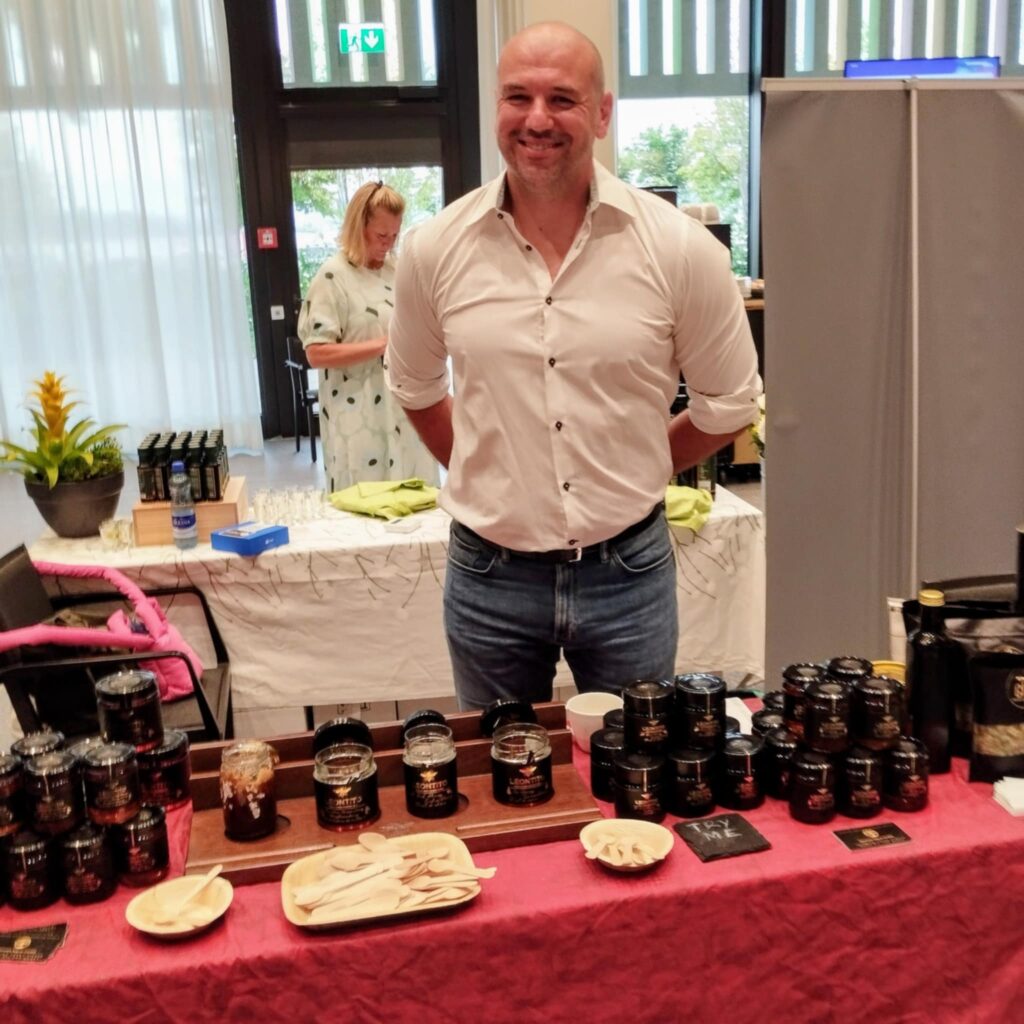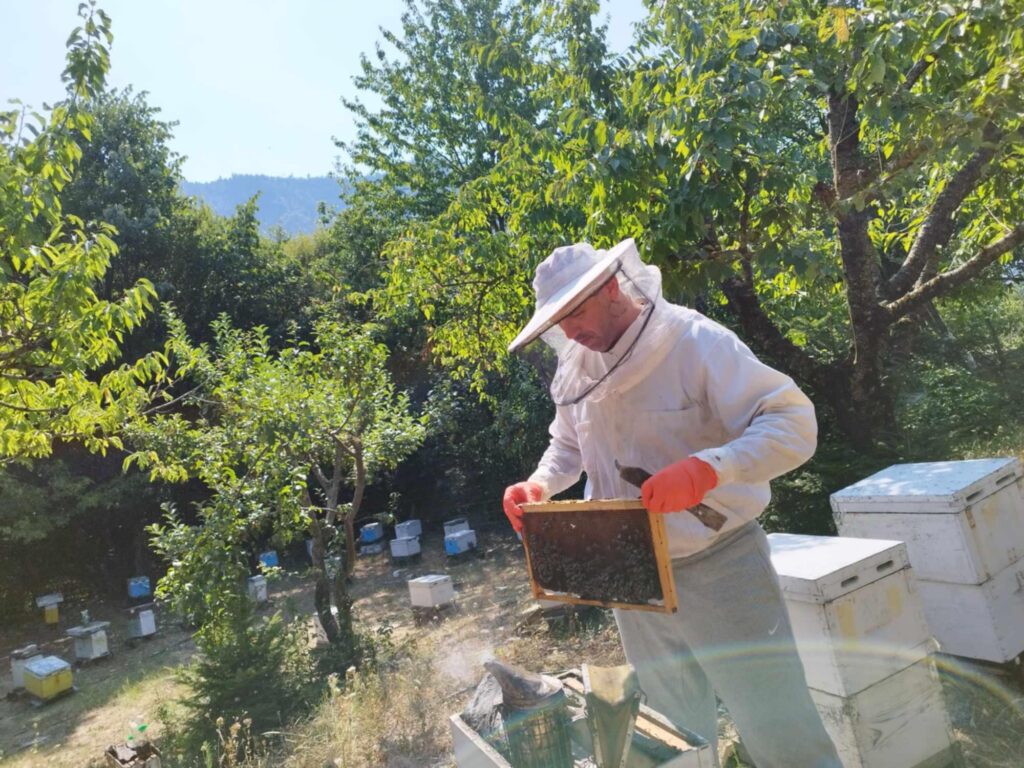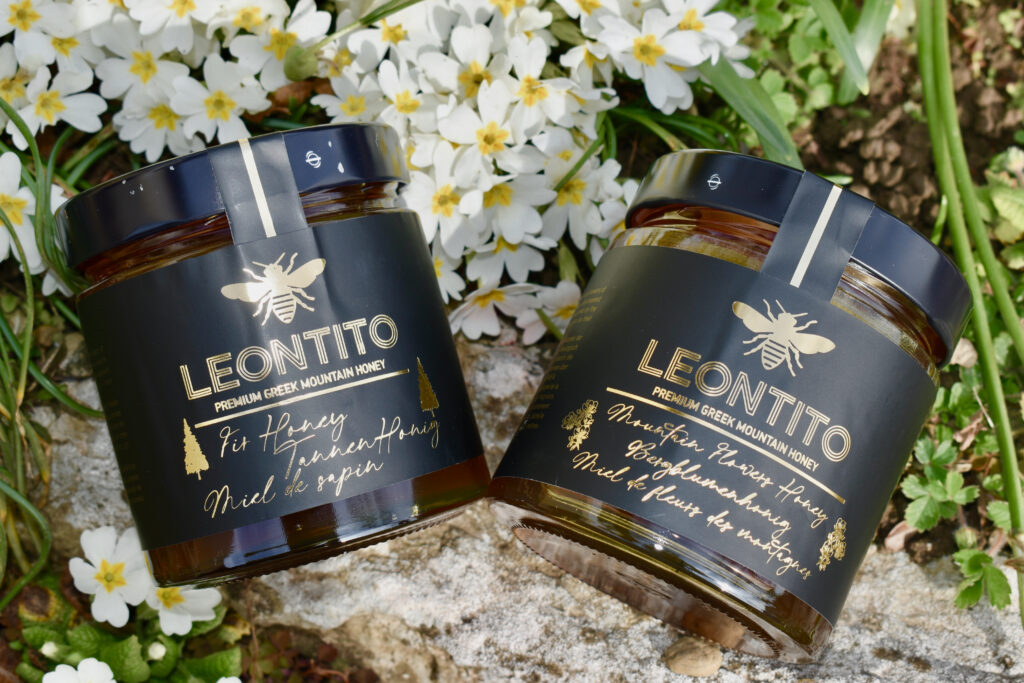If you’ve ever tasted real honey – the truly authentic, from-the-hive, unspoiled kind – you’ll know the flavour lingers. Not just on the palate but in the heart, evoking memories from times past when food was pure and true to taste. That’s the kind of honey Panos, the founder of Leontito, is bringing to your kitchen! Leontito’s exceptional varieties attract global demand – each taste is a story, a memory, a little bit of Greece.

The roots of Leontito run deep into the mountainous region of western Greece. The honey comes from a tiny, almost-forgotten village called Leontito, where Panos’s grandparents were shepherds. “They moved with the seasons,” he explains. “In summer, they went up into the mountains with the herds. In winter, they returned to the valleys to tend olive trees.” In this untouched, remote region, once without roads or electricity, the family began keeping bees.

Today, Leontito still produce honey in that same pristine environment. The bees forage across fir trees, wild oak, alpine flowers, and arbutus – or strawberry trees – in what UNESCO recognises as one of the five cleanest areas in Europe. “There’s no pollution, no chemicals, nothing artificial,” Panos says. “It’s a paradise.” But Leontito is more than just honey. It’s a legacy. What began as a way for the family to share their honey with neighbours has grown into a passion project that now supplies five-star hotels and Michelin-starred chefs. Despite this success, Panos’s mission remains simple: to share real honey with real people.

The honey itself is remarkable. Each variety has its own character – from the lush richness of oak to the delicate floral notes of alpine honey. Panos’s personal favourite is the fir honey, which he describes as “the taste of my childhood.” One of the most intriguing varieties is the arbutus honey, a rare bitter honey with a complex flavour with health benefits. “It’s not like anything you’ve tasted before,” he says. “It’s honey, but different.”

Some sources insist that around 85% of supermarket-sold honey across Europe is diluted with syrups or chemically altered, making many ask, ‘Is this really honey?’ Even the European Commission’s Joint Research Centre managed to reach a figure of 46% when it identified 147 of 320 samples presented were deemed to be ‘non-compliant’.
Leontito stands by its authenticity.
“We control every step, from the hive to the jar,” Panos says. “Nothing is added. Nothing is compromised.” That commitment to purity stems not just from tradition but from responsibility. “This honey is real, and it’s good,” he says. We want to educate people, to bring real food back to the table. That’s why he insists on personally being at LOEB, talking to customers, sharing the story, and letting people taste and experience the difference.

For Panos, this honey is not just a product; it’s home. It’s the mountain air, the wild blooms, the ancient land, and the hands that have passed the craft through generations. And now, it’s a gift he wants to share with the world.
Taste the difference.
Taste what’s real.
This article was written by Dianne Lange for SwissMeUp.com and for those who appreciate yummy honey!
_ _ _ _ _ _ _ _ _ _ _ _ _ _ _ _ _ _
Need some more energy? Try ENERGY UP! Order with the promo / discount done ‘Anderson6’.




No Comments
Leave Comment